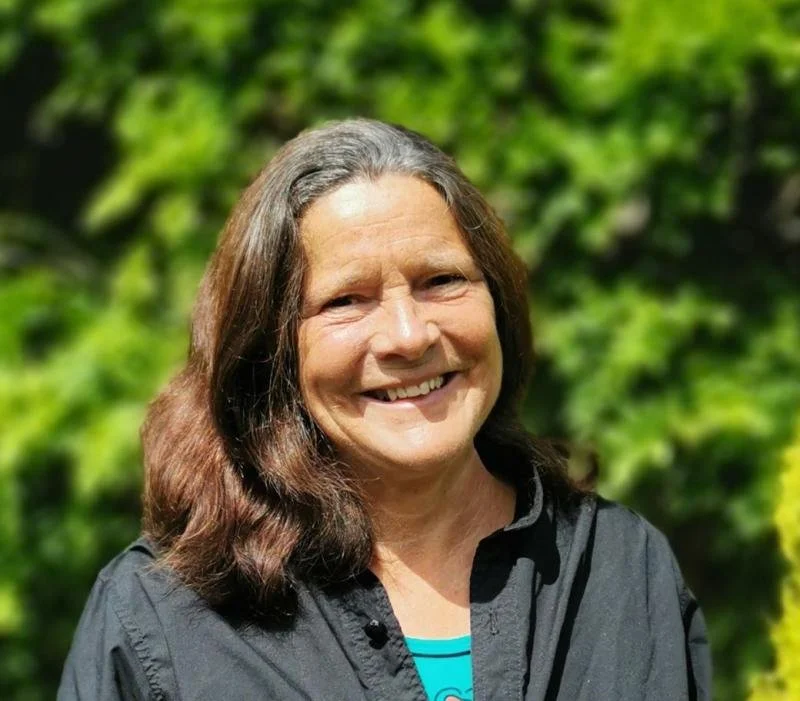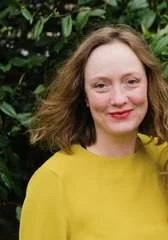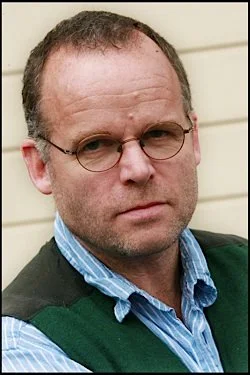Carbon Trading: Shifting Responsibility?
Thursday 18th April 2024, 4.30pm-6.30pm 2024
SEDA Land discussions, Carbon Finance- Community Benefits and Carbon Finance- Getting the Balance Right, dealt with the some of the quite detailed aspects of carbon finance, on the basis that these markets are now well established. Questions were focused on how to maximise the benefits to local those communities most affected while ensuring Scotland meets its CO2 emissions and biodiversity targets.
Carbon Trading: Shifting Responsibility? takes a step back to ask some more fundamental questions, including, should SEDA support these markets?
How does the carbon market work: how do emitters buy carbon credits; How do landowners sell their offsetting; how do agencies/governments set-up and administer carbon markets?
What is to stop companies, or even countries, ”buying” their way out of climate trouble with carbon credits while continuing to emit CO2e?”
What is to stop a market in carbon credits among CO2 emitting companies or countries with no consequent reduction in CO2e or biodiversity improvement; indeed might this market not increase CO2e?
To what extent are UK, devolved governments and NGOs, such as Forestry and Land Scotland and Nature Scot, facilitating or indeed participating in carbon trading; should they, and who sets the rules?
Should not the UK Committee on Climate Change (UKCCC), which has identified targets for natural remediation to absorb CO2 and rectify biodiversity loss, only count such measures as valid if there is proof that the emissions cited are unavoidable?
What is to stop large landowners from “rewilding” swathes of their land, including removing or buying out current inhabitants, to invest in carbon credits?
We can’t plant Scotland with trees – there’s simply not enough space. So how are markets regulated to ensure that the offsets will be saved for the really hard-to-deal-with sectors and unavoidable emissions?
The market has already seen land values rise; surely this will price out potential community ownership schemes which could confer community benefit while providing environmental benefits?
Offsets have a well documented and deservedly dreadful reputation for what they’ve achieved and a reputation for things going wrong. How is the Taskforce, set up by Scottish Government Finance Secretary, Kate Forbes, and UN Special Envoy for Climate Change, Mark Carney, going to make sure it’s not just another one of the disasters that has accompanied attempts to offset emissions so far?
Sign up and together we can decide if our political representatives should be facilitating carbon markets and indeed how should SEDA and other environmental organisations support such measures.
PANEL
CHAIR: Sandy Liddell Halliday
MPhil MCIBSE CEng FWES HonFRIAS HonFRIBA Principal, Gaia Group
Sandy is a chartered engineer and internationally respected author, thought leader and communicator with extensive experience of trans-disciplinary working in the field of sustainable buildings and places. She has been a researcher and educator in built environment issues and a sustainability adviser to the private, public and third sector since 1986. Sandy’s ability to bridge gaps between sustainable architecture and engineering is recognised by Honorary Fellowships of the Royal Institute of British Architects (RIBA, 2020) and the Royal Incorporation of Architects in Scotland (RIAS, 2018) and Fellowship of the Women’s Engineering Society. In 2018 she was voted one of the Top 50 Women Engineers working in Sustainability in the UK by the Women’s Engineering Society (WES).
She has significant teaching experience, and developed her own interdisciplinary CPD programme in Sustainable Design for built environment professionals into an undergraduate course. This became the highly acclaimed international monograph Sustainable Construction, 2nd Edition.
Sandy is a member of Gaia International – a world-wide federation of architects, engineers and urban designers working in best practice sustainable design of the built environment; a Director and a past Chair of the Scottish Ecological Design Association – a built environment focussed charity; an active past board member of the Children’s Parliament – a Scottish charity dedicated to the well-being of children; a member of the Women’s Engineering Society Climate Emergency Group; a Built Environment – Smarter Transformation (BE-ST) Innovation Champion and a member of the RIAS Working Group on Sustainability. She contributes a regular thinkpiece to the RIAS quarterly magazine on sustainability.
Vicky Allan
Vicky Allan is an award-winning journalist and author, based in Scotland. A staff writer for the Herald on Sunday, her work has also appeared in The Times, Daily Express, Vogue, GQ, the Guardian and Scotland on Sunday. She has won awards for her travel writing, features writing and for her articles campaigning against violence against women and has written books on topics such as wild swimming, climate change, and the natural world. Her novel Stray is currently being adapted as a feature film. She has always loved the outdoors and wild places. Her Herald Scotland work covers a range of topics including conservation, climate change, social issues., the Scottish environment, rewilding, wildlife conservation, and agriculture.
Relevant articles are:
Alastair McIntosh
Alastair is a pioneer of modern land reform in Scotland. He helped bring the Isle of Eigg into community ownership. On the Isle of Harris he negotiated withdrawal of the world’s biggest cement company (Lafarge) from a devastating “superquarry” plan. He then served, unpaid to avoid conflicts of interest, on the company’s Sustainability Stakeholders Panel for 10 years to help further corporate social and environmental responsibility.
Alastair guest lectures on nonviolence at military staff colleges. His books include Soil and Soul: People versus Corporate Power (Aurum), Spiritual Activism: Leadership as Service (Green Books), Poacher’s Pilgrimage: an Island Journey (Birlinn 2016, Cascade USA 2018) and Riders on the Storm (Birlinn 2020) which was long-listed for the Wainwright Prize in Global Conservation 2021. A Quaker with an interfaith outlook, focusing much of his work around spirituality. There he is a founding trustee of the GalGael Trust which works with with poverty, community and human potential, and is an honorary professor in the College of Social Sciences at the University of Glasgow.
His website is www.AlastairMcIntosh.com.
His most recent relevant publication is The Cheviot the Stag and the Black Black Carbon.
Professor Mark Reed
Professor of Rural Entrepreneurship, Scotland’s Rural College (SRUC)
Mark Reed is Professor of Rural Entrepreneurship and Director of the Thriving Natural Capital Challenge Centre at Scotland’s Rural College (SRUC). He is Research Manager for the International Union for the Conservation of Nature's (IUCN) UK Peatland Programme and a member of IUCN's international Committee on Ecosystem Management. He is a core member of UKRI-BBSRC's, Bioscience for Sustainable Agriculture and Food Strategy Advisory Panel, helping BBSRC formulate its strategy for agriculture and food security. Mark is a transdisciplinary researcher specializing in environmental governance and research impact. He works with rural communities to enhance the governance of natural and agri-food systems, and his research on impact is changing the way researchers around the world generate and share knowledge so they can change the world.
Find out more at: https://www.profmarkreed.com/
Ian Rappel
Ian Rappel is an activist, geographer and conservation ecologist by background. He has been working in conservation for NGOs and in academia since 1993 – an eventful career that has seen him involved in a wide range of issues from trawler-bound dolphin bycatch surveys to the biodiversity impact of the World Bank.
Ian was CEO for Gwent Wildlife Trust for 5 years until September 2019 – where he played a key role in the campaign to save the Gwent Levels against the planned M4 Relief Road. Before joining the Real Farming Trust at the end of 2021 he was the Wales Development Manager for the National Association of AONBs. He has also recently acted as curriculum advisor to the Black Mountains College and Bath Spa University. His key areas of work: Development of College for Real Farming and Food Culture, events, thought leadership.
Ian has also contributed articles about the failure of the concept of natural capital to publications such as System Change Not Climate Change, edited by Martin Empson and to the IS Journal.
Andy Wightman
Andy is a researcher, analyst, commentator and activist on issues of land, power, governance, democracy and money. Over the past 20 years he has undertaken a wide range of work on land tenure, landownership, land reform and, more recently community land rights, governance and the hegemonic dimensions of land relations.
After studying forestry at Aberdeen University he worked as an environmental scientist before becoming self-employed in 1992. In 1996 he wrote Who Owns Scotland (Canongate) and in 1999 wrote a short rant called Scotland: Land & Power. The Agenda for Land Reform in Scotland (Luath.
Since 2000, Andy has developed interests in common land, community land rights and questions of governance, power and money. An example of this interest was a survey and analysis of the common good of Scotland’s burghs and the story of its ongoing maladministration.
In 2010, he wrote The Poor had No Lawyers (Birlinn), an attempt to provide an historical analysis of the land question and to reinvigorate debate around land relations. He remains hopeful of success in countering hegemonic landed power in all its guises. He served as an MSP 2016-2021.
His main project is www.whoownsscotland.org.uk.
You can follow Andy’s blog on https://andywightman.scot/ from which https://andywightman.scot/2023/11/why-scotland-should-stop-selling-carbon/ is most relevant to this webinar.
Scottish Green Party
TBC







